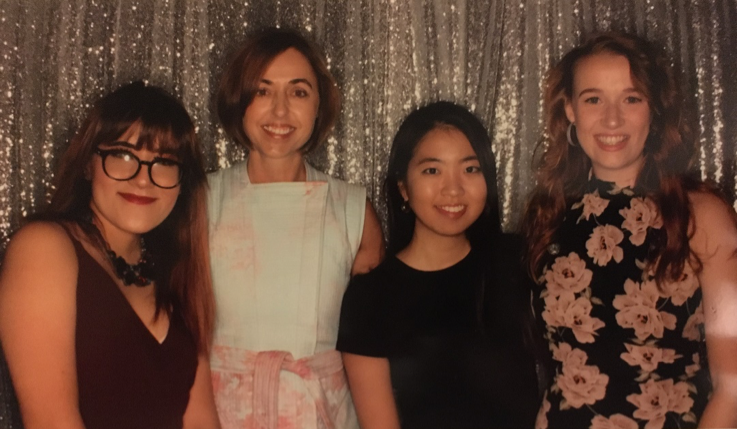Reflections on Interning at the United Nations Association
By Beth Brookes-Lamdin
begin quo
The following post was written by Master's in Peace and Justice student Beth Brookes-Lamdin.
As I come towards the end of the semester, I find myself reflecting on how different my perception of the impact of organizations and NGOs is to when I first started four months ago.
The United Nations Association in San Diego where I have been interning is entirely run by volunteers. That means that every board member, supervisor, manager, intern and volunteer is not paid. There are pros and cons to this.
Firstly, everyone who works there is fiercely committed to and passionate about the organization. I have worked with some of the most dedicated people I have ever met here, and they fill me with hope for the type of peaceful future that we are creating for the next generation.
However, it also means that the turnover of volunteers and interns is quick. For many, life is too crazy and chaotic to manage a voluntary position. As much as they would like to put their time and effort into contributing to a great cause, their paid positions (or university) takes precedence. This impacted me directly, as I had two internships with the organization this semester and one of my supervisors had to quit in order to focus on her education and jobs.
On the flip side, the permanent members are extremely organized and inspiring. They have been able to work out the balance between doing an incredible job at the UNA alongside their careers.
It really is the people who make a place, and not the other way around. If I had not had incredible supervisors and mentors, my experience would not have been half as good as it was. I also got the opportunity to network and attend some incredible events in San Diego. These included Project Concern International’s Hands Across Borders Gala 2019, which raised money for women and girls here and across the world, and San Diego Diplomacy Council’s Global Social Hour where visiting female diplomats were invited to speak about their experience being a woman in peace and diplomacy.
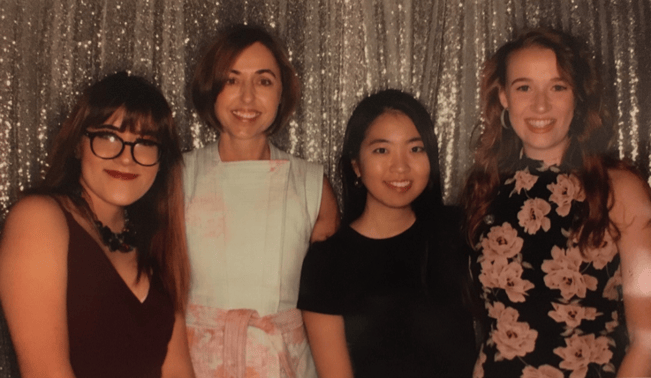
The highlight for me was definitely getting to lobby local representatives from Congress, the Civil Council, the Assembly, and the County Board of Supervisors. The experience was extremely insightful. Not only did we have to do a complete deep dive into their political agenda and bills they had lobbied and voted for, but we also had to decide on one central Sustainable Development Goal we were going to focus on. We then constructed a narrative that was bipartisan, as well as compelling.
The most interesting meeting was probably with Councilmember Barbara Bry. We went in thinking we were going to have one kind of conversation and ended up having a completely different one. This is the issue with politics — often people say one thing and mean another. So, whilst we thought we would get support for various bills to tackle homelessness, we quickly discovered that she had voted down a bill to allow people to sleep in their cars, proclaiming that we needed to find alternative ways to protect the homeless whilst keeping communities safe instead. We didn’t get as far as discussing where the people who slept in their cars would be sleeping that night…
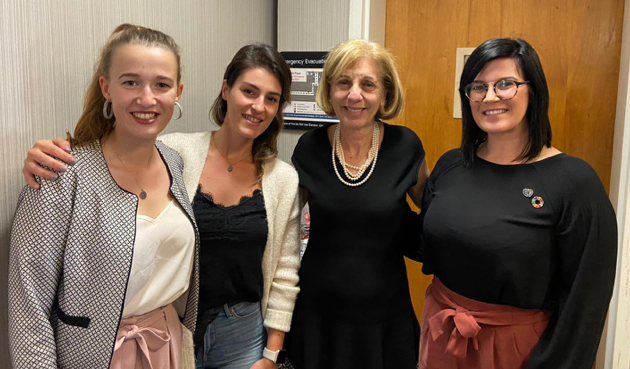
Another interesting meeting was with Congressman Scott Peters. He had declined to vote for the Green New Deal, and so we were interested in hearing his stance on climate action. He took us step by step through his Climate Playbook. Though I won’t say whether I agree or disagree with either his proposal or others, he really did care about looking after the environment and implementing effective changes. Everyone has a different idea about how to deal with the crisis, which is why it is so important for civil society groups, such as the United Nations Association, to continue to ensure that these ideas are heard, discussed, debated, and implemented.
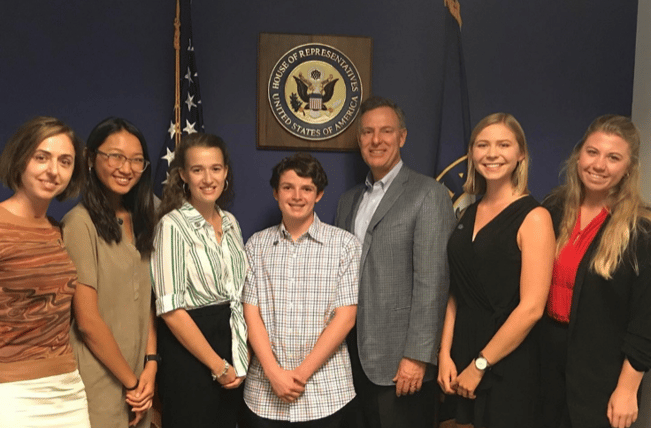
Next semester I will continue with the UNA but in a different role, so I will no longer be an intern. The great opportunity that volunteer-led organizations give interns is that they place responsibility on us much quicker than your typical hierarchical organization, and therefore everyone feels more value in nurturing and placing effort into it.
I will also be attending the UN Conference on Women (CSW63) as a representative of the UNA San Diego. It will celebrate 25 years since the Beijing Conference, and therefore looks to be a huge event. As someone whose focus is on women’s rights, gender equity, and gender mainstreaming in conflict and peacebuilding, this is a huge opportunity for me. I look forward to meeting the incredible people who are shaping the world that we live in. The professional and practical skills I have gained working at UNA will be a huge asset when I represent UNA San Diego next march. I have not only developed my knowledge of the crucial nature of debate and discussion between all members of society, but I have gained practical experience implementing research into a professional setting. I can’t wait to see what’s in store for me at UNA next year.
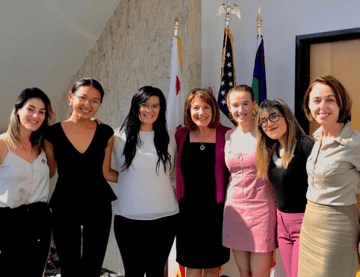
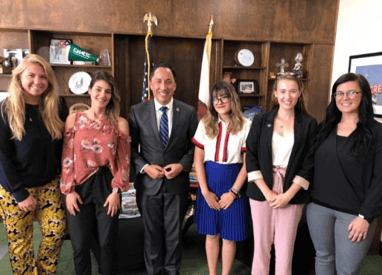
Contact:
Justin Prugh
jprugh@sandiego.edu
(619) 260-7573

About the Author
The Joan B. Kroc School of Peace Studies (Kroc School) at the University of San Diego is the global hub for peacebuilding and social innovation. Founded in 2007, the Kroc School equips the next generation of innovative changemakers to shape more peaceful and just societies. We offer master's degrees in peace and justice, social innovation, humanitarian action, conflict management and resolution, and a dual degree in peace and law — programs that have attracted diverse and dynamic students from more than 50 countries. In addition to our graduate programs, the Kroc School is home to the Kroc Institute for Peace and Justice (Kroc IPJ). Founded in 2001, the Institute supports positive change beyond the classroom. Through groundbreaking research, experiential learning, and forward-thinking programs, the Kroc School and Kroc IPJ are shaping a future in which peaceful co-existence is the new normal.






